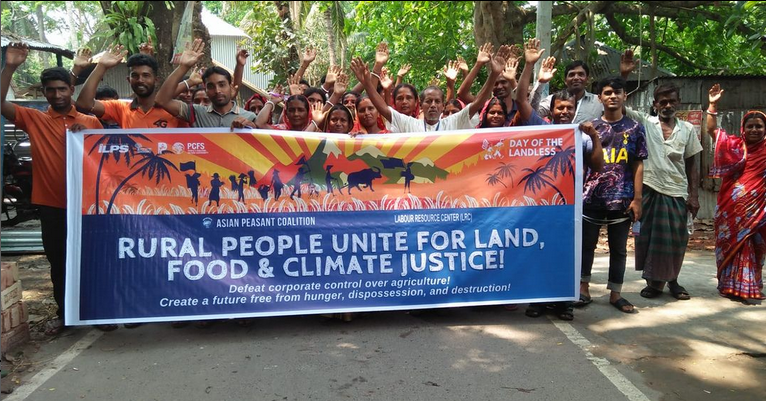
Voices from the South Newsletter
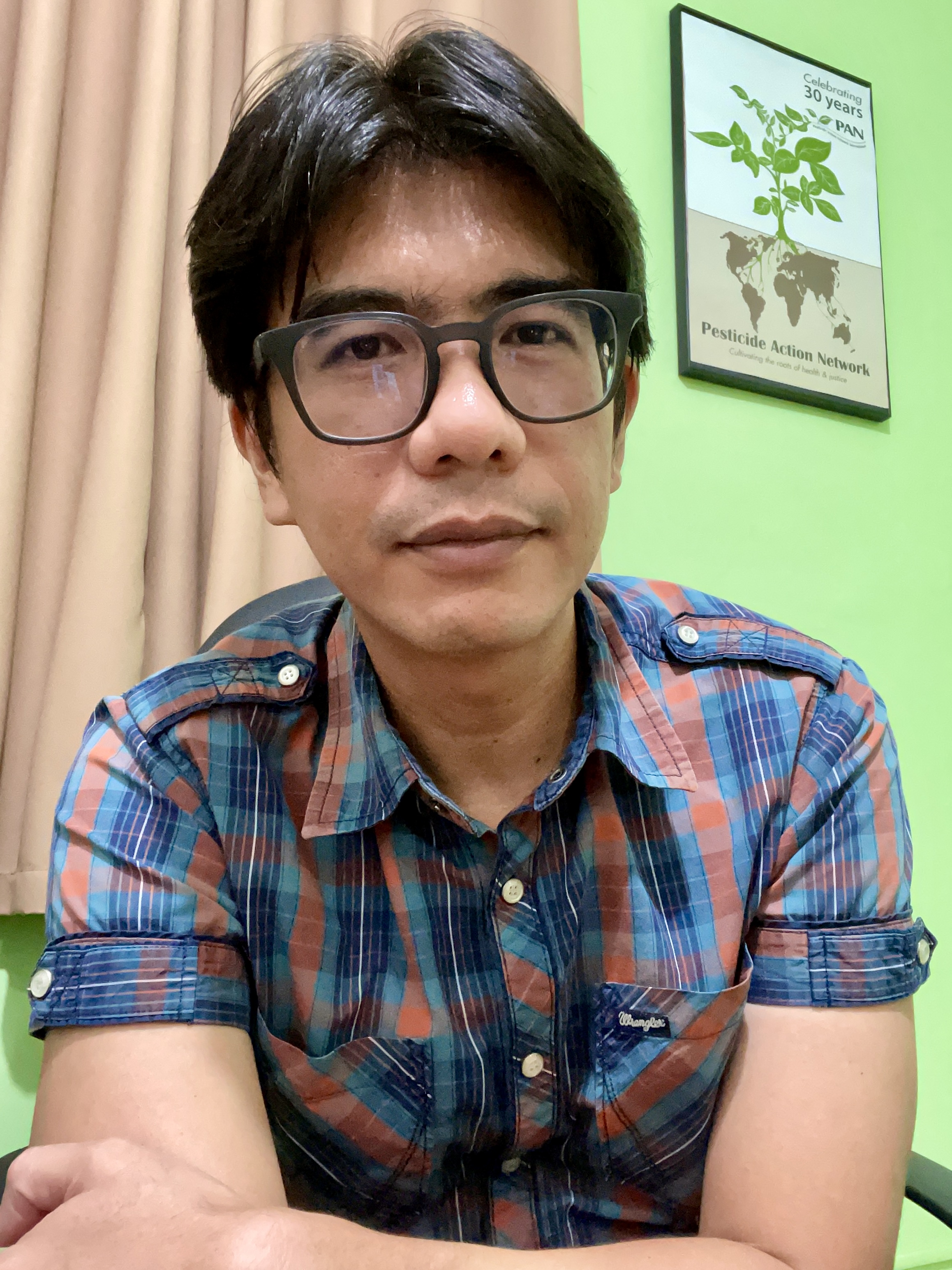
Arnold Padilla
PAN-AP
Arnold is the coordinator of the “No land, No Life” campaign for the Malaysia-based “Pesticide Action Network – Asia Pacific“. He is from the Philippines.
Globally, up to 80% of the poor and 75% of the hungry are in rural areas. The climate crisis is a significant contributor to rural poverty and hunger deterioration. It worsens the already deplorable state of rural peoples’ access to land and other resources and further depresses agricultural productivity, income opportunities, and economic growth, among other impacts.
According to the Food and Agriculture Organization (FAO), about USD 108 billion were lost in agricultural production in Asia, Africa, and Latin America and the Caribbean from 2008-2018 in the aftermath of climate disasters. Crop and livestock production loss due to drought, floods, and storms in poor countries worldwide reached USD 88 billion during the same period.
The voices of rural peoples and those who support their demands for climate justice must be heard. Through the “Global Peoples’ Caravan for Food, Land, and Climate Justice” (GPC), particularly the petition addressed to COP28, we strive to bring attention to these voices.
Read the campaign petition below, and we hope you can join our #AMillionVoices efforts as well!
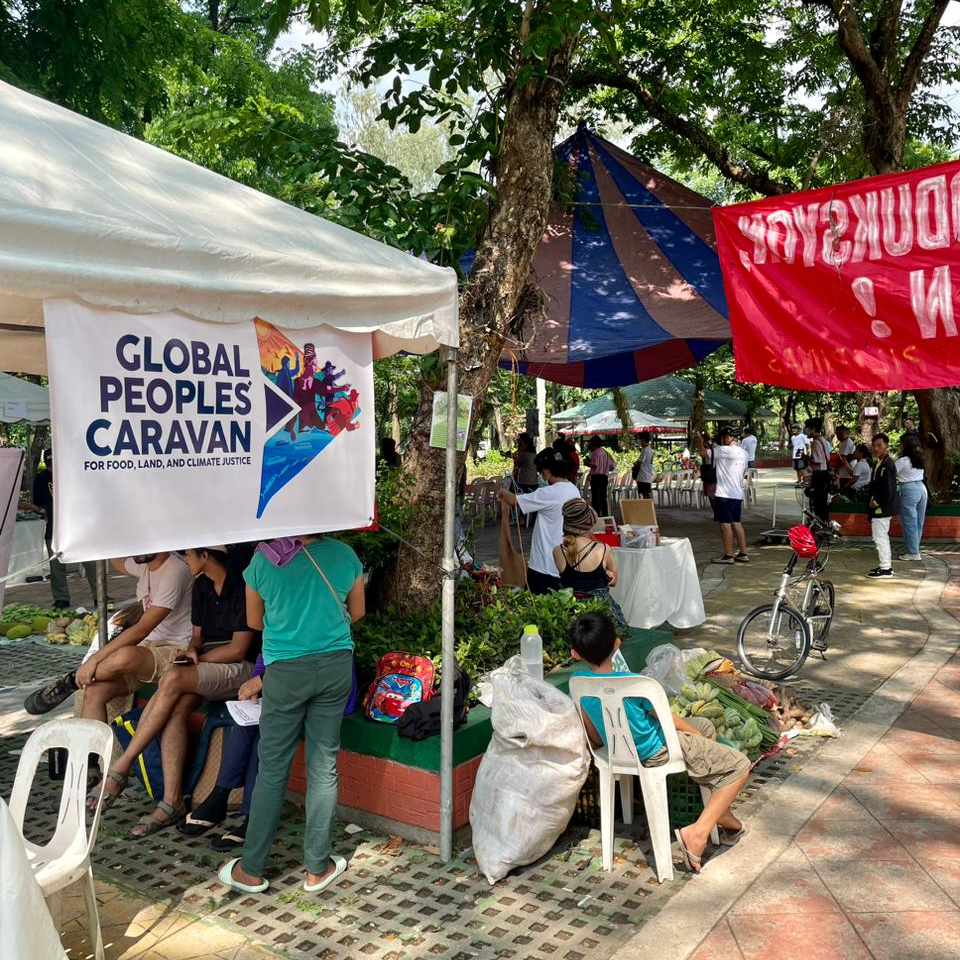
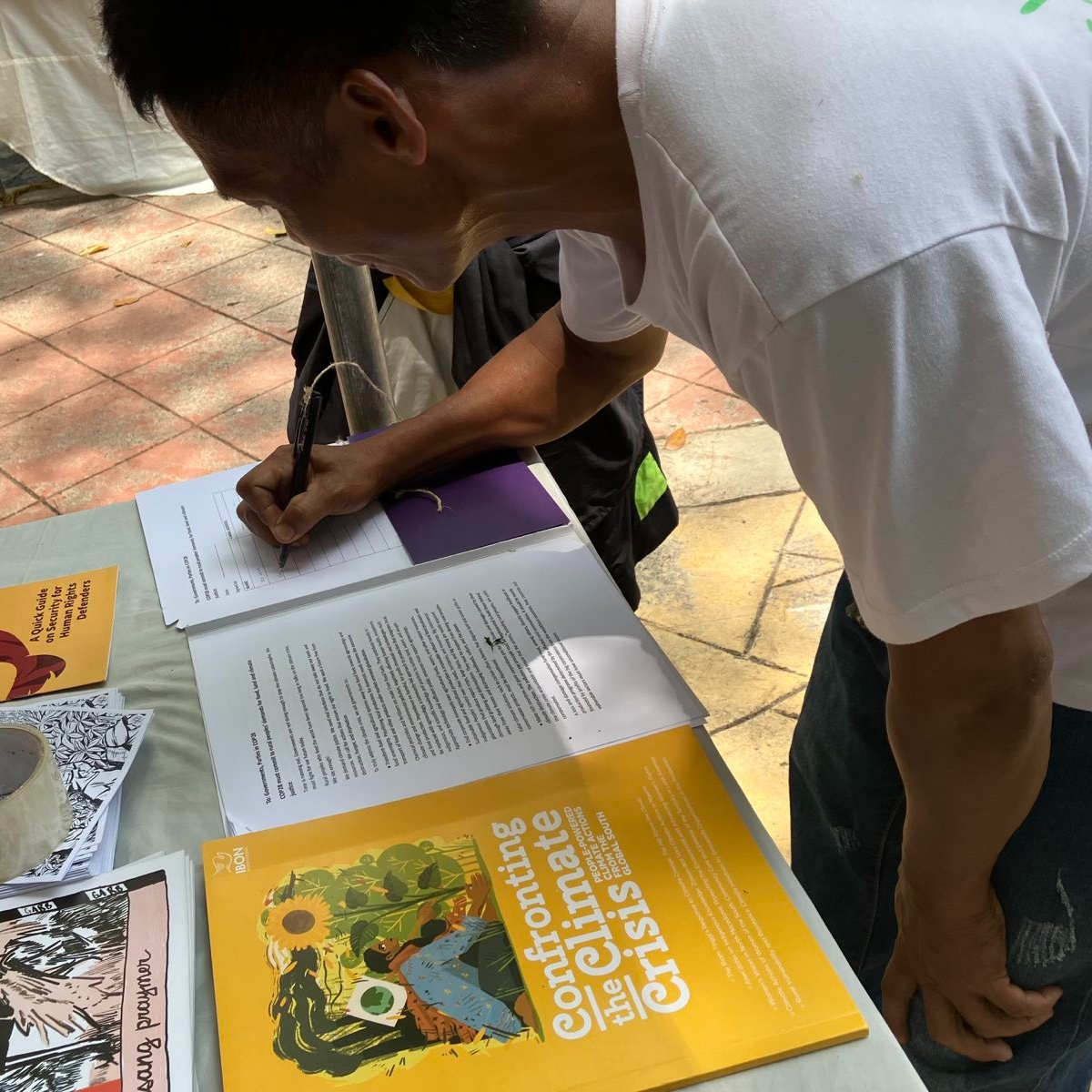
Signature Campaign: COP28 must commit to rural peoples’ demands for food, land and climate justice
Time is running out. Governments are not doing enough to stop the climate catastrophe. We must fight for our future today.
Rural peoples who feed the world have been ignored too long in talks on the climate crisis. We say enough!
We demand climate justice. We need real solutions that do not take away our lands and resources. We call for actions that ensure our right to food. We want a future free from destruction, hunger, and deprivation.
To truly address the climate crisis, we ask governments to:
● Transform food and agricultural systems away from fossil fuels towards agroecology and food sovereignty.
Prioritizing local production for domestic needs lessens the excessive transport of food and other products under market-oriented globalization.
Chemical pesticides and fertilizers are made from fossil fuels. They contribute heavily to climate change and environmental pollution, negatively affecting human health, ecosystems and food production. Dependence on harmful, for-profit chemicals and technologies must be replaced with agroecology, a community-led approach to production that integrates local, indigenous, and scientific knowledge and practices to sustain land, nature, and people. Appropriate technology and sufficient public resources must support agroecology.
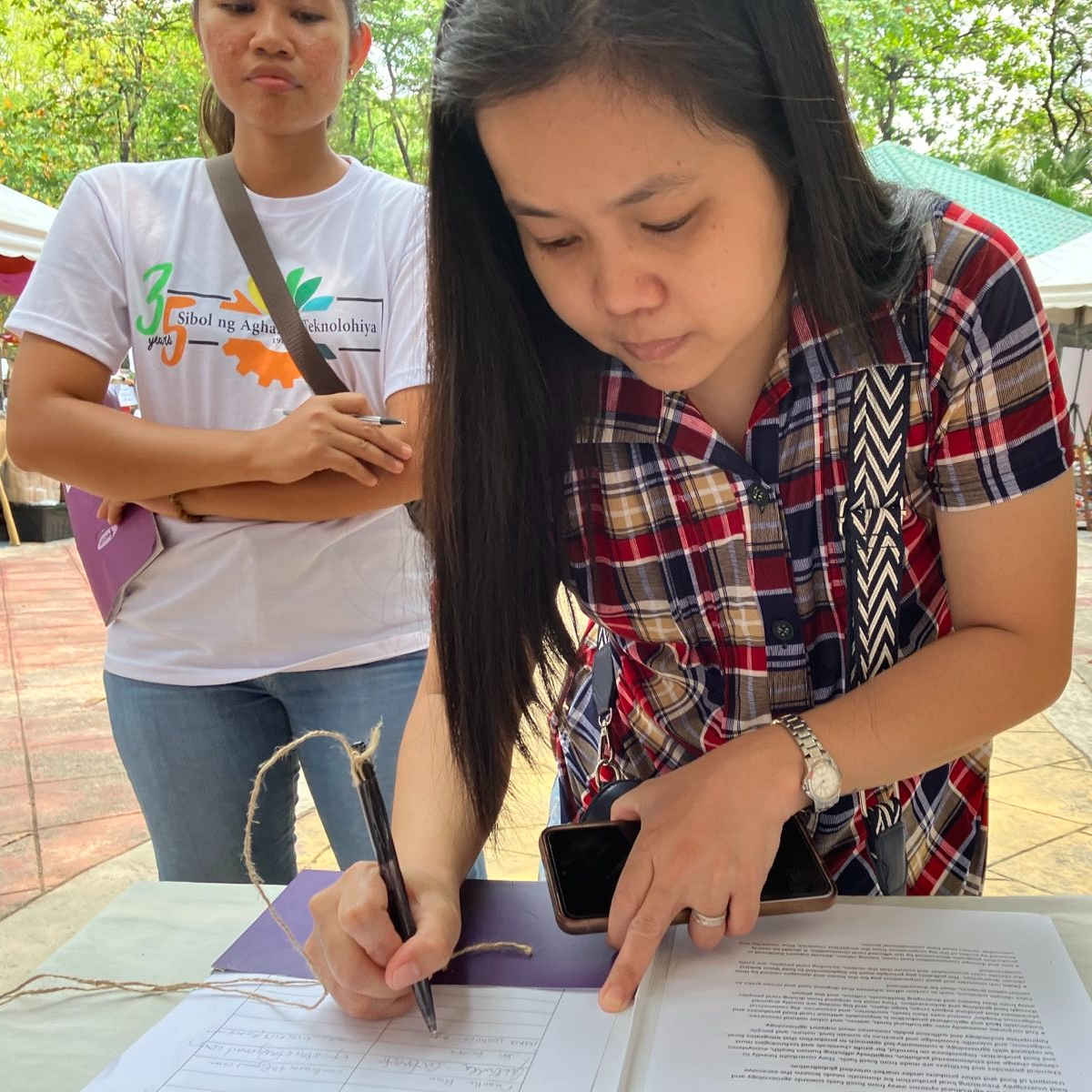
● End corporate monopoly over agricultural lands, waters, and other natural resources.
Sustainable food and agricultural production is impossible without rural food producers and Indigenous Peoples’ control over their lands, territories, and resources. Big commercial plantations that produce export crops, large dams, and big mining are mostly acquired through land grabbing and deforestation. They must be stopped from driving rural peoples away from their homes and destroying livelihoods, culture, and the planet.
False climate solutions, such as carbon offset schemes that disguise land and ocean grabs as conservation projects, must be discontinued.
We demand climate justice. We need real solutions that do not take away our lands and resources. We call for actions that ensure our right to food. We want a future free from destruction, hunger, and deprivation.
● Make rich countries and giant corporations pay for the losses and damages caused by their climate destruction.
The polluters pay principle must be implemented to hold those behind the climate crisis accountable and ensure that the victims, including rural peoples, are justly compensated.
A loss and damage compensation fund must, among others, directly support livelihood or production programs determined by the affected rural communities. It should be mainly financed by profits of the big corporations from the wealthiest countries. Poor countries and vulnerable sectors must have unconditional access.
● Condemn and end wars of aggression and militarization that worsen global hunger, displacements, and the climate crisis.
Powerful nations make the rural peoples’ access to food, land, and other resources even more insecure by launching wars or provoking conflicts for their vested economic and political agenda. The biggest militaries consume massive amounts of fossil fuels to keep their war machines and operations running at the expense of the people and planet.
● Ensure genuine participation of rural peoples in climate policy and decision-making at all levels.
As among the most vulnerable to and impacted by the climate crisis, rural peoples’ demands must be reflected in binding commitments of governments.
Why is this important?
If humanity is to survive and thrive, people’s rights and sovereignty must be the center of sustainable development – not the narrow profit interests of big corporations. The COP28 climate talks is an opportunity for rural peoples to demand reforms that can help stop their communities’ displacement, people’s hunger, and the planet’s destruction.
How it will be delivered
Starting 29 March 2023, rural people’s movements from Asia, Latin America and Africa will lead awareness-raising activities, petition signing and other forms of mobilization in order to garner “A Million Voices for Food, Land and Climate Justice.”
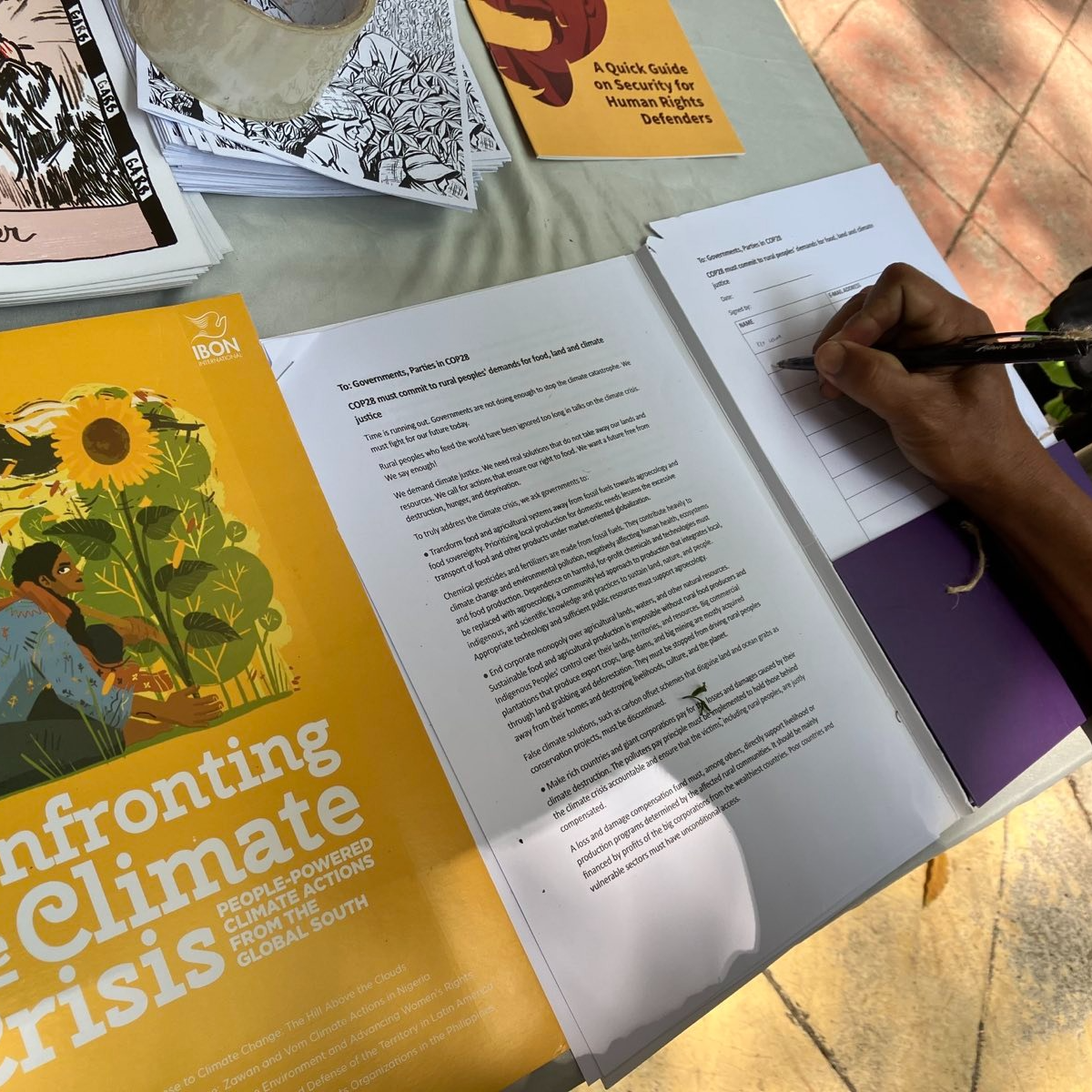

Join the campaign!
Click here to sign the signature campaign!
